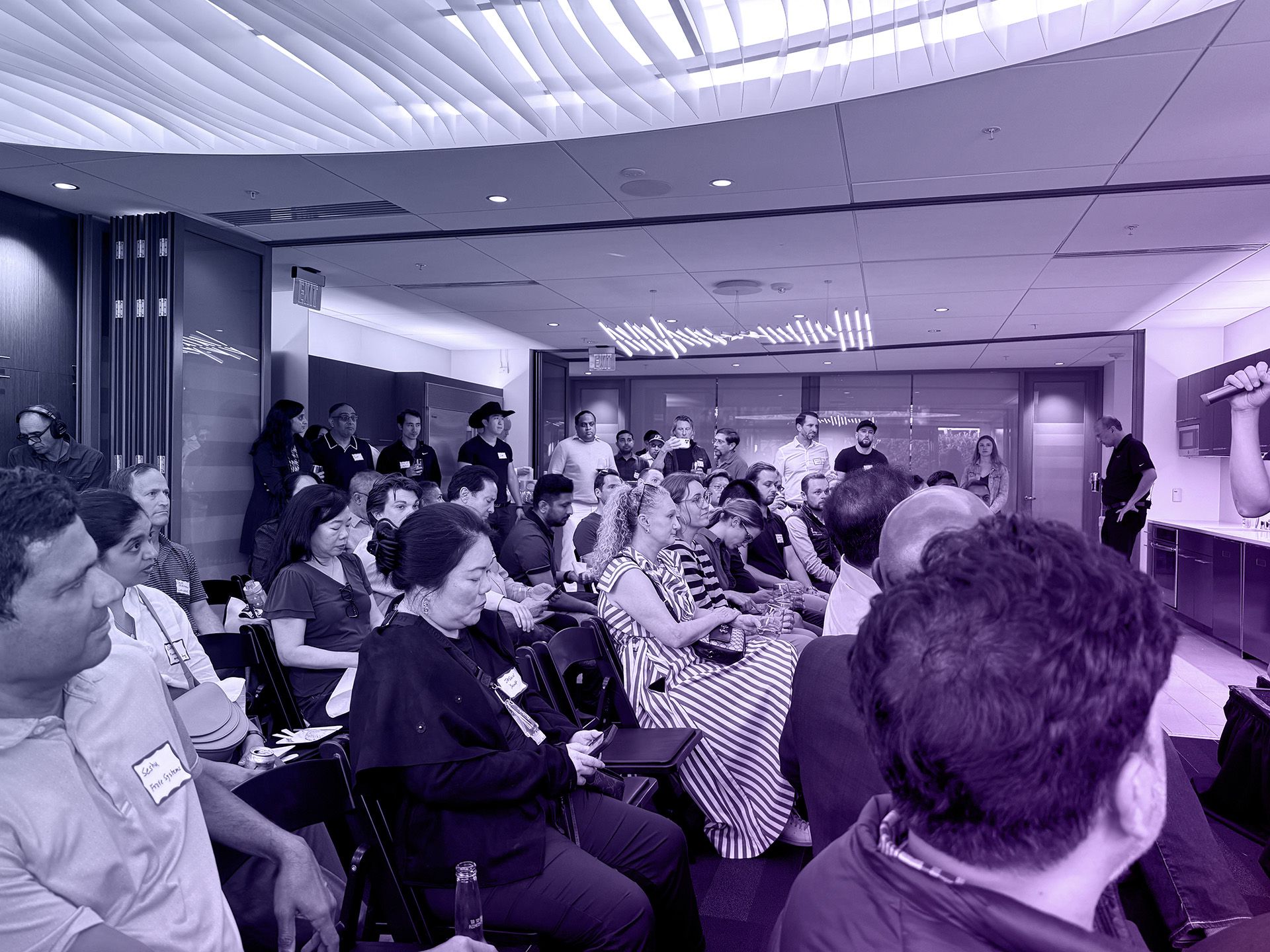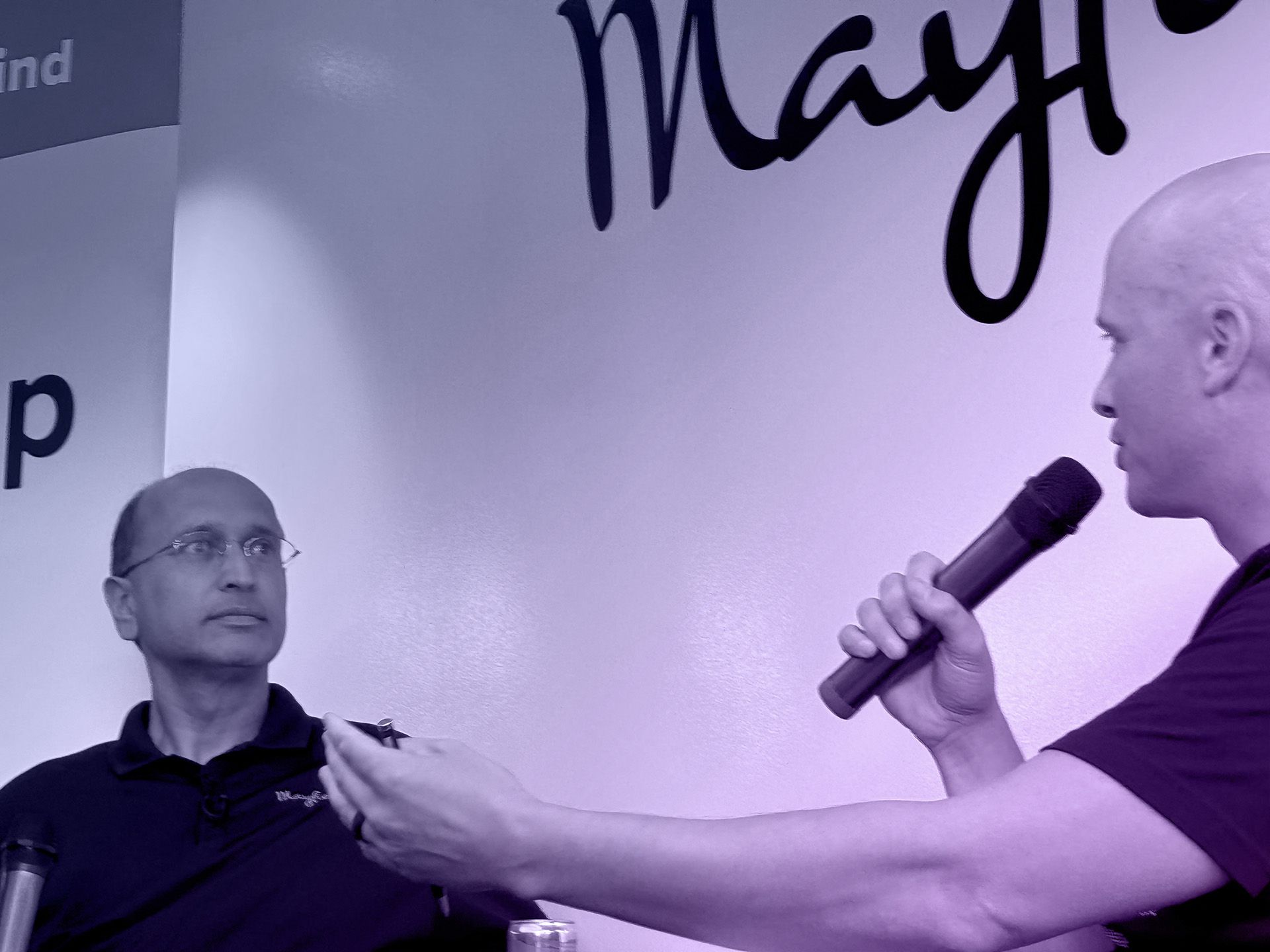Deal Flow




A conversation with Let Point partner Jay Ward
Startup Grind Event | August 2024
Q | Why is “deal flow” important?
“Deal flow” is easy, quality deal flow is hard. Being based in the San Francisco Bay Area, you can easily immerse yourself in the early-stage tech ecosystem here and see plenty of opportunities. The key to achieving high-quality deal flow, however, is to get access to the projects that are likely to be home runs. So, deal flow isn’t just a question of the number of executive summaries you see every week—it’s a question of seeing projects with the right combination of team, technology, and market opportunity.
Q | How do you get “quality” deal flow?
At LetPoint, we believe in the “2 Rs”—Research and Relationships. Research is the foundation of our approach. We heavily leverage Jim’s background as an internationally ranked equity analyst. It’s the source of a significant and sustainable competitive advantage for us.
Research is foundational to great deal flow because it helps you focus and determine where to spend your time and effort. You need to assess which sectors have the greatest likelihood of generating venture capital level returns and what companies in those sectors have the teams and technology to make it happen.
Once that’s done, you need strong relationships to bring investment opportunities to the table. Whether we’re receiving inbound leads from our friends and partners or we’re looking for introductions to CEOs of promising companies, our relationships are critical to our deal-sourcing capabilities.
We do a lot of reading about the industry sectors we’re focusing on, we watch webinars, and attend conferences where we get the chance to meet people and hear their ideas about what’s going on, who’s winning, and what’s working. Being based in the Bay Area enables us to meet 1:1 with all members of the California tech ecosystem (e.g., other VCs, lawyers, students, faculty members, and entrepreneurs).
There’s no substitute for being plugged into the California tech community. It’s not just the Silicon Valley—San Francisco, Los Angeles, and the East Bay all have robust technology communities that rival the Valley, and, in some cases, exceed it with respect to being home to compelling investment opportunities. For example, San Francisco’s Cerebral Valley is where OpenAI chose to call home, not Mountain View.
Q | Can you give us some examples of how you sourced deals?
Of course! The work Jim and I did at Pasaca Capital was full of great examples of the “2 Rs” in action. We created a deal pipeline with significant quantity and high quality opportunities.
We can start with the Visby project. Visby Medical is a diagnostics company that develops PCR-based diagnostic tests for the detection of infectious diseases. They were a client of my legal practice. Jim thought the company was a great fit for Pasaca, given Pasaca’s interest in funding medical-related companies. Pasaca did extensive due diligence and offered to lead Visby’s Series E round.
Another project we identified was Heart Aerospace. Aviation and environmental sustainability are personal passions of the Pasaca founder. Jim and I researched the space and I used my contacts at UC Berkeley to identify Heart. Heart is a Swedish company making electric airplanes for regional travel. We did robust due diligence on the company and were really impressed by the contracts they had signed with Air Canada, Scandinavian Airlines, and United Airlines. Pasaca got invited to participate in Heart’s $107M Series B round.
The SandboxAQ deal is one I’m particularly proud of. I’ve been passionate about the potential of quantum computing for some time. SandboxAQ is an enterprise SaaS company that provides AI and quantum solutions. Jim and I both went to Williams College. Through networking we connected to another Williams College alum (an attorney) who connected us to another Williams alum that is close to the SandboxAQ CEO. The company was looking for an additional investor to close a round. The fact that Google’s former CEO, Eric Schmidt, was an investor in and Board member of Sandbox was a very important part of our decision making. Sandbox raised $500M through a Series D offering.
If the SandboxAQ project proves the value of relationships, the Regard deal proves the value of strong research. We had been looking at artificial intelligence deals for awhile, but hadn’t found anything that both aligned with Pasaca’s investment priorities and demonstrated the business metrics that we wanted to see in our investments. Regard solved the problem! Regard uses AI to automatically diagnose patients and generate accurate notes for doctors to improve patient care and reduce burnout.
I came across the company while researching opportunities that solved medical and administrative problems that the hospitals Pasaca funded were facing, using artificial intelligence. I attended a talk given by Regard’s CEO and reached out to him, getting an introduction from the CEO of the incubator Regard was founded in. The introduction led to several rounds of due diligence meetings and we were ultimately invited to participate in the company’s $61M Series B round.
Q | Besides being in the Bay Area, does Let Point have other deal sourcing advantages?
We saw them at play in the Sandbox deal, where we got into the opportunity through our Williams College connections. We see a lot of activity through our participation in alumni networks. I’m personally active in networks I’m in through my alumni affiliations with Harvard Law School, the Stanford Graduate School of Business, and UC Berkeley. On any given day, I may be at a presentation of startups looking for funding sponsored by the Stanford Angels & Entrepreneurs group or a DOLCIT lecture by a postdoc on metrized deep learning at CalTech. Through these affiliations, I was able to personally take positions in Iambic Therapeutics and Cohere. Iambic is an AI driven drug discovery platform that Mubadala Capital has also invested in; they closed on a $50M Series B financing in April. Cohere provides enterprises with access to Large Language Models and NLP tools via API. They raised $500M in July.